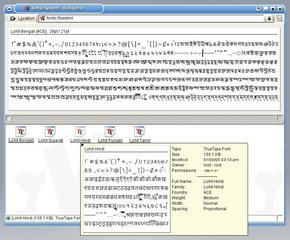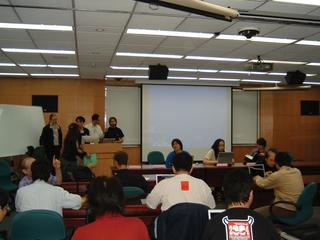With the recent release of Fedora Core 3, the Red Hat supported community project, Red Hat had already given users a preview of the company's ambitions towards Indic localization. The first languages to be supported are Bengali, Gujarati, Hindi, Punjabi and Tamil. As part of the upcoming release of Red Hat Enterprise Linux 4, Red Hat showcased the beta version of the Bengali desktop at Infocom 2004 in Kolkatta.
Infocom is billed as the largest IT show in Eastern India. Scheduled in the first week of December, it is the ideal venue for companies to showcase technological advances. On December 2 2004, West Bengal's Minister in charge of IT, Manabendra Mukherjee, released the Red Hat Enterprise Linux 4 beta version in Bangla or Bengali, the language spoken in Bangladesh and the neighboring Indian State of West Bengal. The Government of West Bengal has introduced an e-governance roadmap underlining the need to use local languages at the public access points where services are offered. Referring to the government's open source initiatives, which are already quite evident, the minister said he expected the release of Red Hat Enterprise Linux in Bangla to augment the government's citizen centric efforts to provide better quality of services especially in the land record and village upliftment sectors. He also talked about the Computer Literacy Project, which is aimed at schools, stating that he believed that Bangla on the desktop would add value to the ongoing project.
At its Infocom booth, Red Hat had put a user feedback process in place. Visitors were requested to take some time to browse the desktop interface in the local language and perform predefined tasks. The feedback was recorded for analysis. Over a period of five days, over 300 visitors dropped by to participate in the user feedback process.

The first batch of Indic languages in Red Hat Enterprise Linux represents the efforts of the Red Hat internationalization team, and a second crop of languages is scheduled to be released and integrated by the end of 2005. As part of the Indic release of Red Hat Enterprise Linux, Red Hat has also released a set of Open Type fonts under the GNU GPL, named "Lohit" after the traditional name of the Brahmaputra river.
http://download.fedora.redhat.com/pub/fedora/linux/core/3/SRPMS/ttfonts-indic-1.6-1.src.rpm
